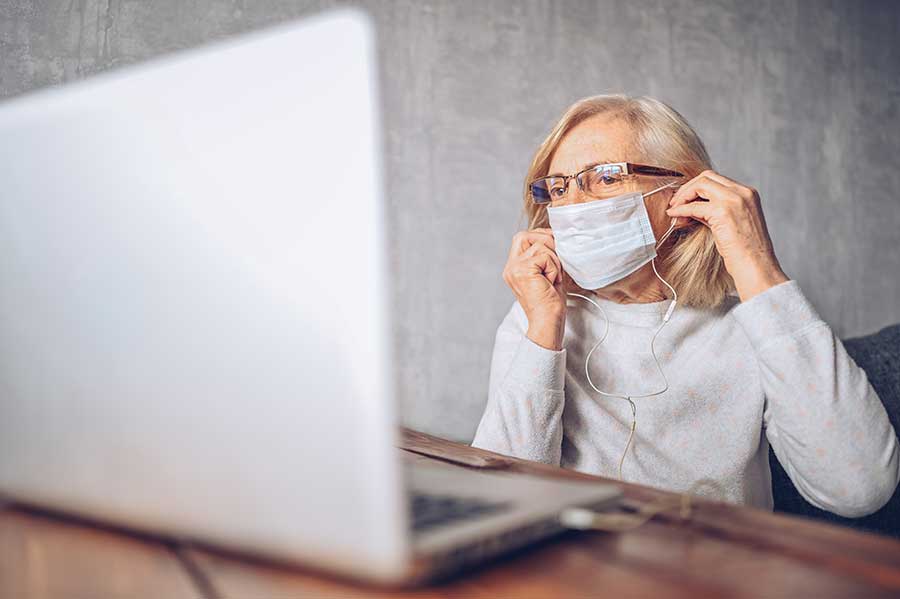
Not retiring: The pension savings conundrum
There has been a lot of talk about how to fund people living longer lives which has...read more
Long Covid affects a significant number of employees, but many employers are still not aware of what it really means for sufferers or how to handle it in the workplace.

According to the Office for National Statistics, over a million people in the UK have reported experiencing Long Covid.
The symptoms – over 200 have been identified – are vary from physical and cognitive fatigue to persistent high temperature and breathlessness to generalised pain. Added to this is the mental health impact of having to live with a sudden and potentially long-lasting debilitating condition. Some people have it for a few weeks, others have had it since the early days of the pandemic.
Guidance for employers has taken a while to emerge. One of the problems is the lack of a clear diagnosis of the condition because there is no consensus regarding diagnostic criteria. This has led to some employers treating it like any other illness or categorising it simply as ‘fatigue’ or ‘depression’.
Long Covid is not considered a disability under the Equality Act either. The Act specifies that a disability has to be long term, usually considered at least 12 months, but experts believe this could possibly change as time wears on and Long Covid becomes more established.
Sandra Edwards is a founding member of LongCovidSOS, a small campaign group set up by long-term sufferers. They met through the Body Politic support group, a global network of Covid-19 patients, chronic illness allies and health and disability advocates.
LongCovidSOS’ campaign aims to put pressure on the Government to recognise the needs of those with Long Covid and to raise awareness among the general public and employers so that people with the condition are not discriminated against.
They have conducted surveys by reaching out to other support groups and found that 80% of those with Long Covid were unable to return to work after a year. Another large study shows nearly half of people with Long Covid have been unable to properly return to work six months after infection.
The LongCovidSOS website also helps Long Covid sufferers by signposting them to resources, for instance, giving them advice about their employment rights, such as rights to Statutory Sick Pay. Sandra says many Long Covid sufferers have applied for Personal Independence Payments which helps with some of the extra costs if people have a long-term physical or mental health condition or disability. Many have failed after the initial assessment and had to appeal. Some have been successful on appeal.
Others have tried a phased return to work, but have crashed and relapsed. Sandra says people with Long Covid can have a good day when they have more energy and then a bad day. “That’s the nature of it. It is hard to manage,” she says. “It is so important to pace yourself and manage your day to day energy.”
The majority of the LongCovidSOS community fell ill in the early part of 2020 when the condition was not even recognised and have had to experiment to find what works to make their symptoms less severe. They share information about research and what treatments work.
Research is still emerging, but it seems to point to the fact that women are at increased risk of developing the condition as are people who are overweight or prone to asthma. There are several hypotheses as to why, for instance, because their immune system is generally stronger than that of men – who are more likely to die from Covid – and it has over-responded to the virus, leading to their immune system turning on itself. Another suggestion is that Long Covid is the result of viral reservoirs or lingering fragments of viral RNA or proteins in the gut.
There are additional concerns for Long Covid sufferers as Covid-related restrictions are lifted. First is the worry that Long Covid sufferers may be more susceptible to reinfection because their immune systems may be compromised. Sandra says she knows people who have had the virus again. Sometimes they have had it only mildly, but some say reinfection has made things worse and taken them back to how debilitated they were when they first got Long Covid.
Vigilance is therefore important. “It’s a life-changing experience. You have to reframe your life to protect yourself and keep safe,” says Sandra. She says there are fears that as the country opens back up and furlough is removed that those Long Covid sufferers who have failed to return fully to work will lose their jobs.
In the meantime, the All Party Parliamentary Group on Covid is trying to get the condition classified as an occupational health disease for NHS workers, given frontline workers have been particularly affected.
Sandra says it is vital that employers are better educated about Long Covid so that sufferers don’t feel guilty or that their employer doesn’t believe them when they tell them about their symptoms. Official advice has taken a while to catch up with what sufferers have been experiencing. Sandra states: “We are still learning. It is a novel condition. No-one is sure if they will get better in a few months, if they will eventually make a full recovery. Some have, but there are so many unanswered questions.”
She would like to see the Office for National Statistics including data on Long Covid in their regular update figures, given the potential impact on the economy of growing numbers being affected, including young people.
*For those affected by Lond Covid, Gez Medinger, an investigative science journalist, has posted useful information about the condition on Youtube, including this video. Information on safe rehabilitation can be found here.